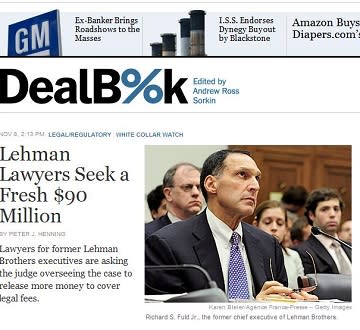 The Upshot
The UpshotWill NYT’s new DealBook get pay-wall ‘reprieve’?

The New York Times is rolling out a new website and print component this week for DealBook, the must-read financial newsletter started by Andrew Ross Sorkin that now boasts a 16-person staff.
Sorkin, the Times' chief mergers-and-acquisitions reporter, who also chronicled the nation's financial collapse in last year's book, "Too Big Too Fail," spoke to London's Telegraph over the weekend about DealBook's evolution and expansion.
What started as an email newsletter in 2001 is now a sizable part of the Times' daily business coverage. Sorkin said the current list of subscribers reads like a who's who of Wall Street and international finance. "It's staggering who reads DealBook every day," he told the Telegraph.
So, given DealBook's success online — where Sorkin's site is to the financial world what Mike Allen's Playbook is to Beltway politics — how will it maintain its readership (and influence) when the Times puts up a pay wall in early 2011?
Times executives have given few specifics about how the paper plans to charge for content online, beyond indicating that the site will have a meter system, permitting readers to access a certain number of articles before they have to pay.
That's left media reporters reading the tea leaves to divine how the Times will charge for digital content. Now the Telegraph only adds to the pay-wall speculation by suggesting that DealBook readers may still have significant access to the site's contents even after the Times begins charging.
The Telegraph's Emma Barnett wrote that Sorkin hinted DealBook "will be given an initial reprieve from the pay wall, while the newly expanded version grows its audience from the email service, over to the site."
Unfortunately, however, the Times won't elaborate on what a "reprieve" might entail.
"We haven't announced any plans with our pay wall, so it is premature to comment about our plans," a Times spokesman told The Upshot.
